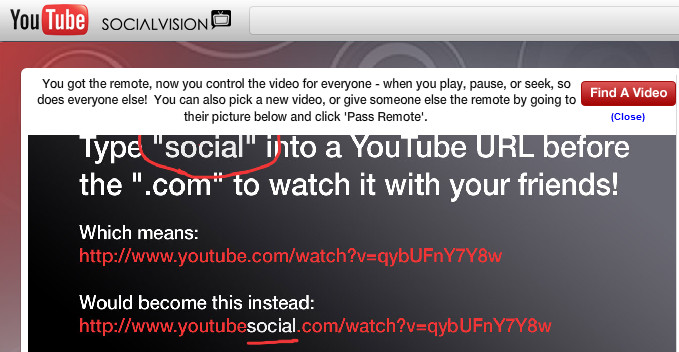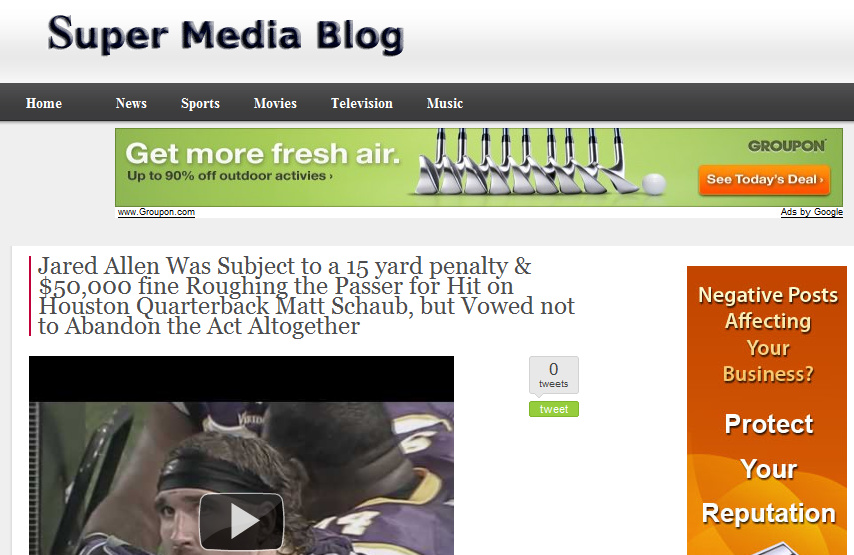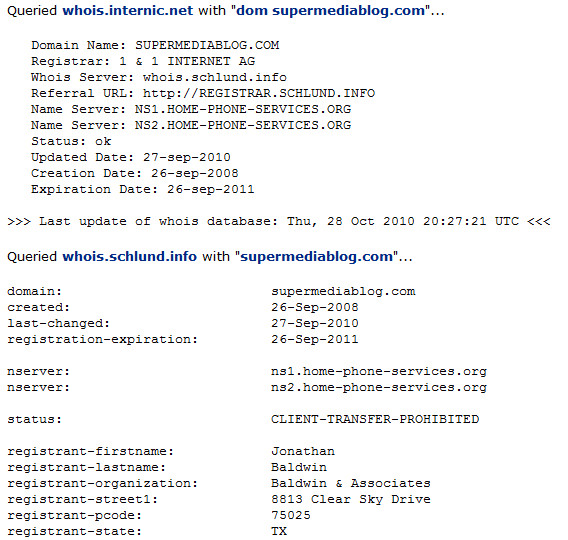This week, TechCrunch reported on how Google has demanded that YouTubeSocial.com stop using their “YouTube” trademark and hand over their domain name. The writer, Alexia Tsotsis, goes on to remark that since YouTubeSocial has attracted over 50K of unique visitors and is in acquisition talks, “…they are doing something right.”
No they aren’t. They’re doing cybersquatting.
Alexia is suggesting that Google is going after them over trademark infringement of the YouTube brand name because Google must think YouTubeSocial is some big threat to them. Really? 50K of uniques is a threat to YouTube already?
That’s actually a bit disingenuous, because TechCrunch knows very well that if you don’t protect your trademarks you stand at risk of losing them entirely. There’s no real evidence that Google has gone after YouTubeSocial over any perceived competitive threat — and, TechCrunch must know that Google would and should try to stop the service from using the YouTubeSocial name since TechCrunch themselves have been known to police their own trademark name, logo and look.
I can appreciate that TechCrunch is right in some cases about how such moves are sometimes about big companies attempting to squash threats. However, that doesn’t excuse cybersquatting on a domain name that uses someone’s trademark — and it actually negates someone’s ingenuity since they’re creating something that’s apparently parasitically dependent upon stealing some of the goodwill already invested in someone else’s brandname.
There are also cases where trademark infringement is maybe less clear or only marginally related.
For instance, this week I noticed a website in Bing search results for “supermediablog.com“, and I clicked upon it because I thought it might be a site created by SuperMedia, the current incarnation of a company I used to work at which operates Superpages.com. Now, I happen to know that SuperMedia does indeed have a number of blogs and sites where they publish product articles and popular culture posts (for instance, check out their humorous “Top 15 Zombie Pickup Lines” they pubbed recently).
However, when I clicked into the “Super Media Blog”, I was unimpressed with the content, since it seemed like a cheaply scraped or syndicated stream of unrelated stories, and the overall design was very poor, with a blurry logo and lower-quality banner ads.
The poor quality made me suspicious, so I did a WhoIs search on the domain name and discovered it wasn’t registered to the SuperMedia company at all. Instead, it’s registered to someone named “Jonathan Baldwin” of Plano, Texas:
In this case it may not be quite as immediately clear-cut whether the Super Media Blog is intended to be derivative of the SuperMedia brand name. This is mainly because the SuperMedia brandname is composed from somewhat more generic-sounding parts that could be arranged together by happenstance more than the more distinctive “YouTube” name.
However, I think this is indeed intentional cybersquatting. Jonathan Baldwin apparently operates in the Dallas-Fort Worth metro area, where SuperMedia is headquartered, and is probably quite aware that “SuperMedia” is a company’s brandname. SuperMedia does advertising and brand promotion in this area on a regular basis — phone books are delivered throughout the metro area with the SuperMedia and Superpages brands prominently displayed — and, the large event center in downtown Dallas is named through the company’s sponsorship: the Superpages.com Center.
I used to actually police for infringing domain names when I worked for Verizon, and there were many dozens which I turned over to the intellectual property division for enforcement. Verizon and other companies contract with services that monitor for domain name registrations that infringe on permutations of trademark names, but I have a number of methods for finding even more than what those automated services usually detect. Point me to a major brandname trademark, and nine-to-one I betcha I can find some infringing domain names! (Major companies should read my past article on how to use the techniques of cybersquatters for legal promotional advantage.)
This sort of trademark infringement is something which needs to be policed by corporations in an ongoing basis, and due to the way trademark laws work, it has to be enforced with takedown notices, cease-and-desists, and confiscation of domain names.
Cybersquatting and receiving a cease-and-desist notice are not signs of cleverness or success. Cybersquatting is wrong, and TechCrunch knows it.
Tags: cybersquatting, domain name squatting, techcrunch, trademark infringement, youtube social






 ShareThis
ShareThis
I have a client who is thinking about buying a domain name that matches their city and trade. Their is also a company in that town who has a business name that closely matches. Here’s a similar example:
City: Los Angeles
Trade: pest control
My company: John Smith Pest Control
Competitor: Los Angeles Pest Control and Termite
Would I be a cybersquatter if i owned LosAngeledPestControl.com and used it for my business?
James – that’s a very good question.
I think that’s one that’s worth checking out with an IP attorney, because it may not be clear-cut. It’s usually infringement if you buy a domain name that’s extremely close/identical to someone’s business name.
However, it may be considered too generic to be protected.
Check with an attorney before risking losing in court — you don’t want to invest a whole lot into a name only to have it yanked away.
Silver – Thanks for the confirmation. I recently advised the client to do just that.